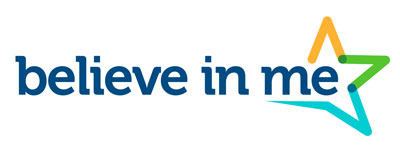Believe In Me: foundation for kids knows that people of color always have and always will matter. Whether or not a person of color deserves to have rights is a topic that should not be up for debate. Believe In Me is committed to fighting racism within our organization, throughout Spokane, and across the country. At Believe In Me, we are committed to building a more just and equitable organization and community where all individuals can achieve their potential. It is the policy of the foundation to provide and promote equal opportunity for all people without regard to race, color, creed, national origin, gender, age, sexual orientation, religion, marital status, familial status, veteran’s status, or the presence of any sensory, mental, or physical disability.
The Foundation is fully committed to building an inclusive culture and community that uplifts and celebrates diverse and unique individuals while enabling them to not just survive but to thrive as they achieve their full potential. Recognizing the negative impact of racism on children of color, Believe In Me partners with organizations that promote racial equity, address systemic racism and empower children of color to thrive. To truly appreciate how our beneficiaries are helping children of color, we must understand the difficulties they face daily due to racism.
You’ll be Shocked at the Destructive Impact of Racism on Kids’ Health
Children of color are affected by racism from the womb. The cumulative stress of disparities in income, education, health care, and mass incarceration resulting from centuries of systemic racism has devastating effects on the health of minority children. Current infant mortality rates are high as infants born to mothers of color die at twice the rate as those born to caucasian mothers, even at similar income and education levels. However, women of color are three to four times more likely to experience a pregnancy-related death than white women.
As children of color grow up, they continue to experience discrimination that negatively impacts their physical and mental health. Experiencing racism triggers the release of the stress hormone cortisol, which leads to inflammation and, consequently, greater susceptibility to chronic disease in people of color. Exposure to racism causes higher rates of depression, anxiety, low self-esteem, experimentation with drugs and alcohol, and social isolation.
YWCA Spokane, a Believe In Me 2021 grant program recipient, recognizes these effects and is dedicated to eliminating racism, empowering women, standing up for social justice, helping families, and strengthening communities. Their safe shelter program is an example of one of many YWCA programs that regularly serve a large number of non-white people. YWCA Spokane strives to ameliorate the mental health effects of racism with a program called Transformations Camp. The camp is tailored to girls of color aged twelve to sixteen who have experienced social isolation, bullying, trauma, or a combination of the three. The feedback for the program has been overwhelmingly positive. Unfortunately, due to COVID-19, Transformation Camp was canceled until it is safe to resume.
Better Play is a Great Way to Combat Racism in Schools
Children and adolescents are most likely to experience racism at school. According to the U.S. Department of Education, Office of Civil Rights,
“[d]uring the 2015–2016 school year, Black students represented only 15% of total U.S. student enrollment, but they made up 35% of students suspended once, 44% of students suspended more than once, and 36% of students expelled.
The U.S. Department of Education concluded that this disparity is ‘not explained by more frequent or more serious misbehavior by students of color.’”
This disparity has devastating results: black students are more than three times as likely as their white peers to be expelled or suspended, which makes them more susceptible to worse academic performance, truancy, dropping out, and entering the school to prison pipeline.
Playworks, another one of the Believe In Me’s 2020 grant program recipients, focuses on making school a place where all children can thrive, especially children of color or low-income students. Playworks specifically works with schools to establish recess policies that address systemic racism and interrupt the school to prison pipeline. As stated earlier, students of color are disproportionately disciplined, and therefore miss out on play more often as recess is commonly taken away as punishment. On the playground, students of color are often the victims of racial bullying and social isolation. Play is vital to children’s development and is the right of every child by the United Nations High Commission for Human Rights. However, racism and discrimination serve as obstacles to play for children of color and those from low-income communities. Recognizing play as the right of every child, Playworks aims to ensure every kid, regardless of skin color or economic status, can play every day. Seventy-seven percent of the children Playworks served this year identified as BIPOC (Black, Indigenous, and People of Color, which demonstrates the vital work Playworks is doing to make sure children of color get equal opportunities to play. During the 2020 COVID-19 pandemic, Playworks has continued to serve children of color through their Play at Home Series: online content created to support virtual and offline play. In light of recent national conversations surrounding racism, aspects of these videos have undergone revision to foster a safer space for BIPOC children.
What You Need to Know About Diversity and Leadership at Local Nonprofits
Both the YWCA and Playworks recognize how important leadership and employee training is to promote more inclusive environments for those they serve. The YWCA has a Racial and Social Justice library that board members and staff are invited to borrow from. They also offer paid training for direct service staff on topics such as implicit bias. Translation services are also provided to provide clients who speak limited English with meaningful access to services. Former YWCA CEO Regina Malveaux, J.D., is a woman of color and has served on several boards to advance racial justice, including the San Diego NAACP. Her life experiences inform the development and strategy for the Transformations Camp mentioned earlier in this article.
Similarly, Playworks provides caring, consistent adults and peer leadership that create safe spaces that empower all children to feel included and better prepared to learn. These efforts have positively impacted the 230,240 students of color directly served this year, not including the many reached through Play at Home.
What You Can Do to Combat Racism in Your Everyday Life
It is our responsibility to educate ourselves, not the duty of people from minority groups, on the ways racism impacts our world. Here are a few ways you can become a more informed neighbor:
- Talk to kids about racism–Here are some tips and resources on how to start the conversation.
- Speak up–If you see or hear an occurrence of racism, say something! Here are some tips and responses you can use.
- Read a book–To learn more about systemic racism and how we can combat it, get reading! Consider buying the book from a bookstores owned by a person of color.
- Sign a petition–browse petitions on change.org.
- Donate
- Attend a protest–wear a mask, of course! If you cannot go, ask protesters if there is anything they need.
- Amplify BIPOC voices–if you find a helpful resource, share it on a social media platform. Make sure to engage with the content you repost to avoid performative activism.
- Reach out–Reach out to friends and see how they’re doing. Here’s what to say.
- Support Businesses owned by people of color in Spokane
How to Join Us in Fighting Racism
Believe In Me: foundation for kids is continuing to partner with community organizations that are doing vital work to create racial equity, address systemic racism, and empower children of color. Please consider donating to Believe In Me or giving your time as a volunteer to aid in our mission to help every kid develop the self-confidence they need to succeed.






